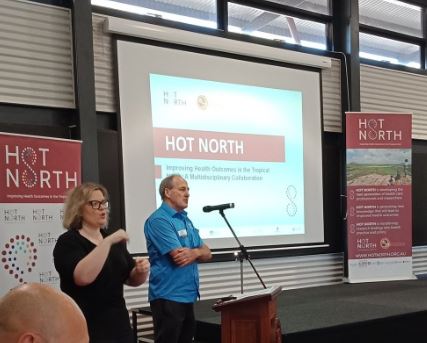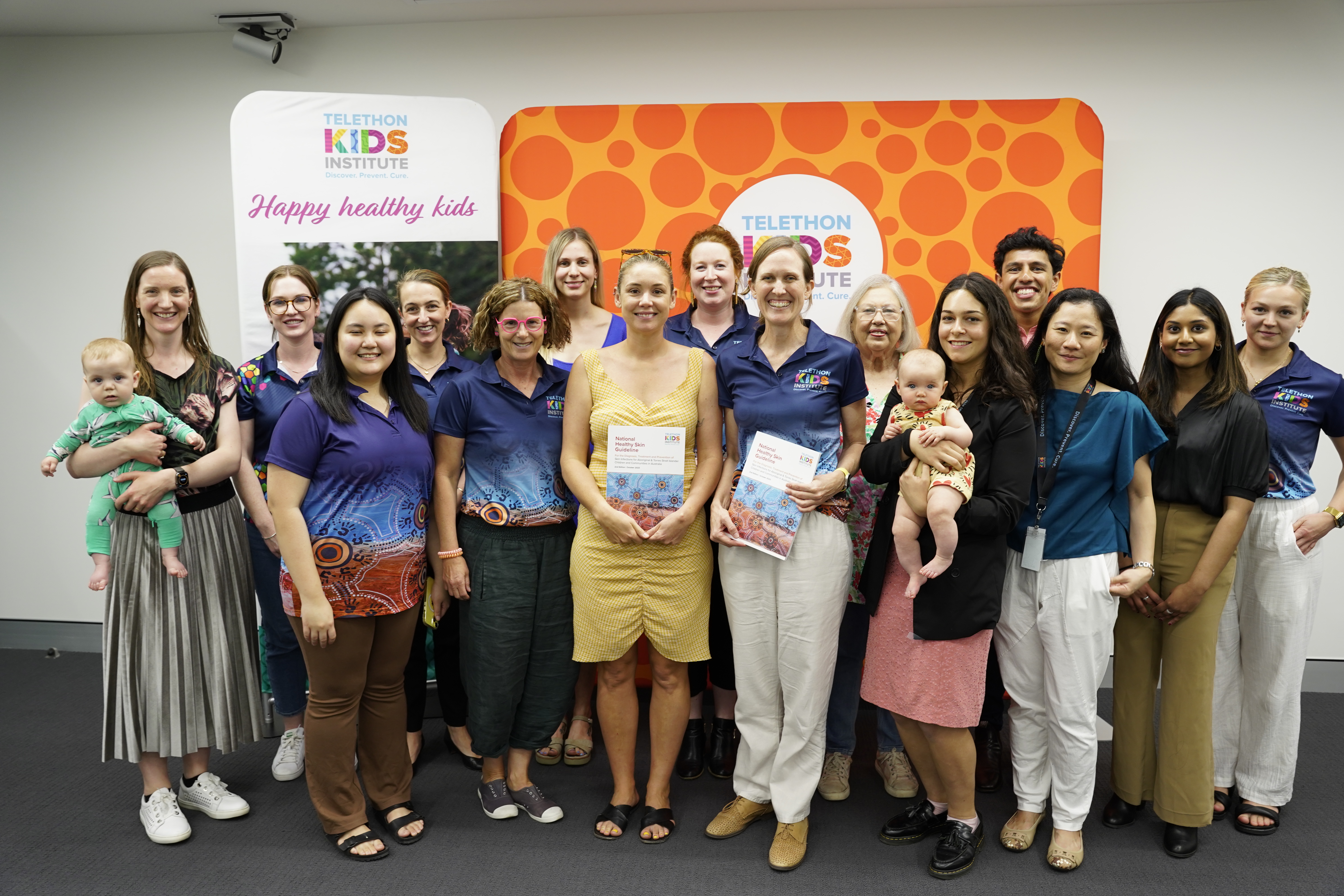Search
Research
Clinician perceptions of research priorities for the management of noncritically ill patients admitted to hospital with SARS-CoV-2 infectionThe changing phenotype of coronarvirus disease 2019 (COVID-19) may quickly render guideline-recommended interventions obsolete. We developed a 40-question clinician survey in consultation with the Australasian COVID-19 Trial site investigators. The survey was designed to assess clinician perceptions of the current treatment strategies and future research priorities in the management of non-critically ill patients admitted to hospital with SARS-CoV-2 infection.

News & Events
Expert researchers converge on Broome to tackle health challenges in Northern AustraliaOver 100 researchers and health professionals from around Australia have united in Broome this week to address the major health battles facing people living in the tropical north of the country.
Research
Medical Comorbidities in MECP2 Duplication Syndrome: Results from the International MECP2 Duplication DatabaseSince the discovery of MECP2 duplication syndrome (MDS) in 1999, efforts to characterise this disorder have been limited by a lack of large datasets, with small case series often favouring the reporting of certain conditions over others. This study is the largest to date, featuring 134 males and 20 females, ascertained from the international MECP2 Duplication Database (MDBase).

News & Events
New healthy skin guide for health sector to identify and treat skin issuesA new National Healthy Skin Guideline has been launched by The Kids Research Institute Australia, to help health care providers identify, diagnose and treat a range of skin conditions experienced by Aboriginal and Torres Strait Islander people in urban and remote areas.
Research
Real time monitoring of respiratory viral infections in cohort studies using a smartphone appCohort studies investigating respiratory disease pathogenesis aim to pair mechanistic investigations with longitudinal virus detection but are limited by the burden of methods tracking illness over time. In this study, we explored the utility of a purpose-built AERIAL TempTracker smartphone app to assess real-time data collection and adherence monitoring and overall burden to participants, while identifying symptomatic respiratory illnesses in two birth cohort studies.
Research
What happens at two? Immunisation stakeholders’ perspectives on factors influencing sub-optimal childhood vaccine uptake for toddlers in regional and remote Western AustraliaIn Western Australia (WA), children aged 24 months living regionally or remotely (non-urban) have suboptimal vaccine uptake. As there has not yet been a systematic approach to understanding the facilitators and barriers to childhood vaccination in regional and remote WA, this study aimed to understand the views of key immunisation stakeholders regarding barriers and solutions.
Research
Skin health of Aboriginal children living in urban communitiesSkin concerns are frequent among urban-living Aboriginal children, yet specialist dermatology consultations are limited with studies highlighting the need for improved cultural security. Through newly established paediatric dermatology clinics at two urban Aboriginal Community Controlled Health Organisations (ACCHOs), we aimed to describe clinic and patient data, including disease frequencies and associations, to inform dermatology service provision and advocacy.
Research
An Unusual Resurgence of Human Metapneumovirus in Western Australia Following the Reduction of Non-Pharmaceutical Interventions to Prevent SARS-CoV-2 TransmissionNon-pharmaceutical interventions (NPIs) to reduce SARS-CoV-2 transmission disrupted respiratory virus seasonality. We examined the unusual return of human metapneumovirus (hMPV) in Western Australia following a period of absence in 2020.
Research
Severity of Rotavirus-Vaccine-Associated Intussusception: Prospective Hospital-Based Surveillance, Australia, 2007-2018Multiple studies have shown an association between intussusception (IS) and receipt of monovalent or pentavalent rotavirus vaccine (RV) in the previous 21 days. Disease severity is an important consideration for risk-benefit evaluations of RV, but no studies have compared the severity of IS within 21 days of vaccination (vaccine-associated, VA) and later (not temporally-associated, VNA).
Research
Influenza vaccination among pregnant women in two hospitals in Sydney, NSW: what we can learn from women who decline vaccinationPregnant women are recognised as being at risk of serious illness from influenza. Despite this, and longstanding national recommendations for vaccination in pregnancy, vaccine uptake remains suboptimal. This study aims to determine factors associated with women declining influenza vaccination in pregnancy.
